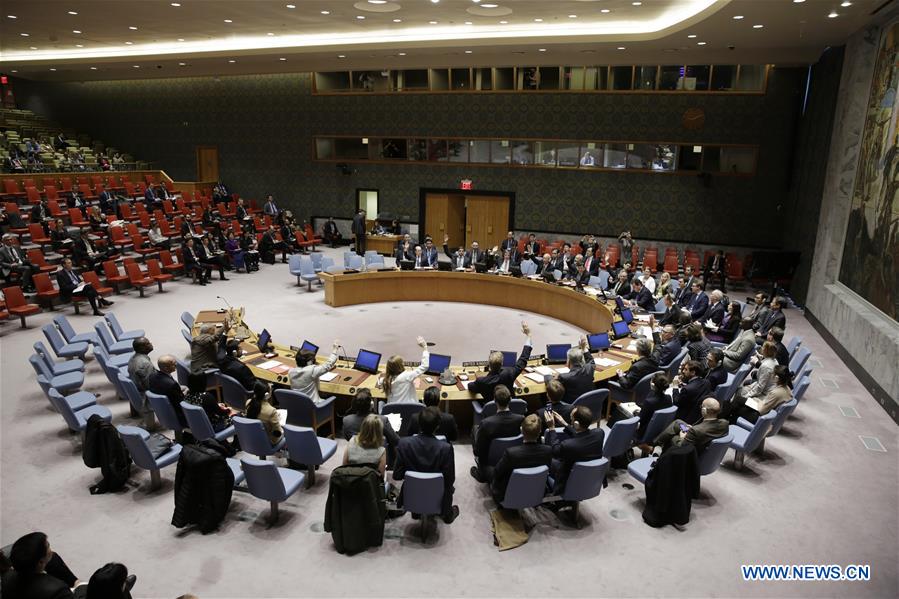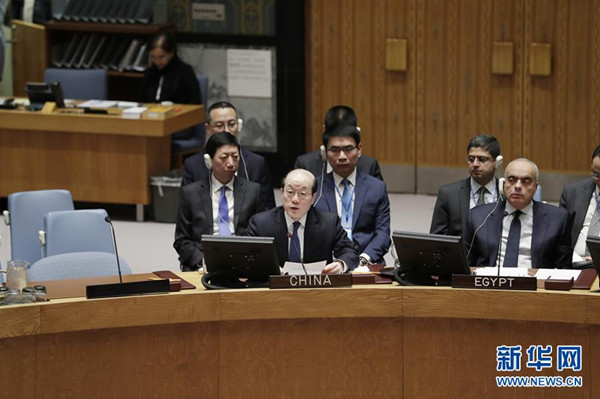The U.N. Security Council has adopted a resolution that tightens sanctions on the DPRK. The amount of coal the DPRK can export is being capped to put pressure on Pyongyang’s ability to fund its nuclear program. There were 15 votes, all in favor of the toughest sanctions ever imposed on the DPRK.

Photo taken on Nov. 30, 2016 shows the United Nations Security Council voting on resolution in response to Democratic People's Republic of Korea's (DPRK) fifth nuclear test, at the UN headquarters in New York, the United States. UN Security Council adopted resolution in response to DPRK's fifth nuclear test.(Xinhua/Li Muzi)
The resolution caps the DPRK’s annual coal exports at U.S.$400.9 million, or 7.5 million metric tons per year, in a move to cut a key source of revenue for the DPRK revenue believed to be a making its way into the country's nuclear program.
The U.S. said the binding cap would slash what the DPRK earns by about U.S.$700 million a year, or more than 60 percent of its coal export revenue.
“The United States is realistic about what this resolution will achieve. No resolution in New York will likely, tomorrow, persuade Pyongyang to cease its relentless pursuit of nuclear weapons. But this resolution imposes unprecedented costs on the DPRK regime for defying this Council’s demands,” said Samantha Power, U.S. ambassador to the U.N.
Coal exports are now only allowed for the livelihood of people in the DPRK. But the sanctions go beyond coal exports by also restricting the sale of metals including copper, nickel, silver and zinc.
China’s ambassador to the U.N. Liu Jieyi said the resolution shows the unity among the international community against the DPRK’s nuclear missile program, but reiterated Beijing’s objections to the U.S. deployment of its Thaad missile system in the Republic of Korea.

China's ambassador to the UN Liu Jieyi speaks after UN resolution
“Since the beginning of this year, DPRK has conducted two nuclear tests and multiple ballistic missile tests. On the other hand certain parties have kept strengthening military deployment, increasing military presence, and scaling up military exercises,” Liu said.
“As a result the confrontation on the Peninsula has intensified, plunging into a vicious circle. This situation must be changed.”
He called for the Thaad deployment to stop, urged parties to return to dialogue and resume the six-party talks and move toward replacing the Korean armistice agreement with a peace treaty.















